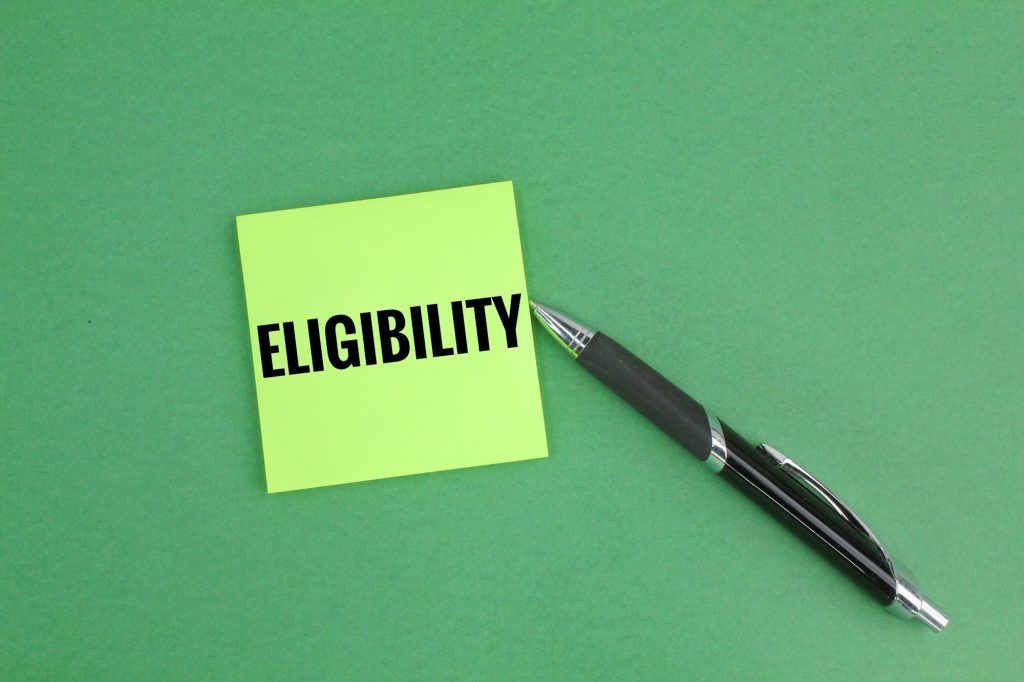SBA Loans:
Finance Your Business
- Home
- Services
- SBA Loans
Financing is essential for small businesses aiming to grow, but traditional loans aren’t always accessible. SBA loans offer a tailored solution with flexible terms and lower monthly payments, making it easier to hire staff, invest in equipment, or expand locations.
Discover how SBA loans can provide the financial lift your business needs, with eligibility insights and application tips to set you up for success.
Types Of SBA Loans
Finding The Right Fit For Your Business Needs
When it comes to SBA loans, there’s no one-size-fits-all solution. Different types of SBA loans cater to various business requirements, whether you’re looking for working capital, long-term fixed assets, or disaster relief.
Here’s a quick overview of the most popular SBA loan options:
- 7(a) Loan Program: The most common SBA loan, ideal for general business purposes like working capital, equipment purchase, and debt refinancing.
- 504 Loan Program: Perfect for businesses looking to invest in large fixed assets, such as real estate or heavy equipment. Offers long-term financing with fixed interest rates.
- Microloan Program: Designed for smaller financing needs, providing loans up to $50,000 to help startups and small businesses with inventory, supplies, or equipment.
- Export Loans: Includes several types, such as Export Express, Export Working Capital, and International Trade loans, to help businesses expand into international markets.
- Disaster Loans: Available for businesses impacted by natural disasters. These loans cover both physical and economic damage, helping companies recover and rebuild.
Each SBA loan type offers unique benefits tailored to specific business situation. Our advisors will guide you to a SBA loan that aligns with your goals and business strategy.
Eligibility Criteria
SBA Loan: What To Know
Ensure your business meets SBA’s eligibility requirements by checking key criteria like size, location, industry type, and financial health.
To qualify, your business needs:
- One Year in Operation: A minimum of 12 months in business
- Consistent Revenue: Monthly revenue of at least $10,000.
- Credit Score: Experian credit score 550 or higher
- Creditworthiness and Repayment Ability: must demonstrate a reasonable ability to repay the loan
Application Process
Steps to Secure An SBA Loan
Applying for an SBA loan involves several steps, but being prepared can make the journey smoother. Here’s a step-by-step guide to help you get started:
Gather Documentation
Collect your business plan, financial statements, tax returns, and personal financial info.
Apply Online
Fill out the loan application, including financials and the purpose of loan.
Submit Financial Records
Provide personal and business financials, including tax returns and bank statements.
Await Approval
Wait for approval, which may take a few weeks, and receive disbursement
SBA Loan Eligibility Calculator
Key Details To Know
Loan Terms and Conditions
Understanding the terms and conditions of an SBA loan is essential to managing repayment effectively and making the most of your funding. Here are the main components to keep in mind:
- Interest Rates: SBA loan interest rates are typically lower than those of conventional loans and can be fixed or variable. Rates depend on the type of SBA loan and the lender.
- Repayment Periods: Loan terms vary based on how you plan to use the funds. Working capital loans may have shorter terms, while real estate loans can extend up to 25 years.
- Collateral Requirements: Depending on the loan amount and type, collateral may be required. Collateral minimizes the lender’s risk, but SBA loans are often more flexible than traditional loans in this regard.
- Personal Guarantee: SBA loans often require a personal guarantee from business owners, which means you’re personally liable for repayment if the business defaults.
- Fees and Penalties: SBA loans may include fees like an origination fee and prepayment penalties. Understanding these costs helps you budget and avoid unexpected expenses.
Why Choose A SBA Loan For Your Business?
SBA loans offer numerous advantages, especially for small businesses looking for affordable, long-term financing options. Here’s why an SBA loan might be the right choice for you:
Lower Down Payments
SBA loans often require less down payment than traditional loans, easing access to capital.
Flexible Overhead Requirements
SBA loans provide more flexible overhead terms for better cash flow management.
Longer Repayment Terms
Terms up to 25 years for real estate loans reduce monthly payments and support growth.
No Collateral For Some Loans
Some SBA loans, like microloans, may not require collateral, ideal for newer businesses.
Choosing an SBA loan can provide your business with the support it needs to thrive, offering both financial and strategic advantages that foster stability and growth.
Lengthy Approval Process
The SBA loan application process can be lengthy, often taking several weeks to months. This may be challenging if your business needs immediate funding.


Strict Eligibility Criteria
SBA loans have specific criteria for credit score, business age, and revenue, making it harder for newer or less established businesses to qualify.
Collateral And Personal Guarantees
Many SBA loans require collateral or a personal guarantee, which could put your assets at risk if your business cannot meet repayment terms.


Fees And Additional Costs
SBA loans may include fees, such as guarantee fees, closing costs, and prepayment penalties, which can add to the cost of borrowing.
Limited Use Cases
Some SBA loan types have restrictions on how the funds can be used, which may limit your flexibility depending on your business needs.

What To Consider?
Potential Drawbacks Of SBA Loans
While SBA loans offer many benefits, they may not be the ideal fit for every business.
Understanding these potential drawbacks can help you assess whether an SBA loan aligns with your business's financial strategy and tolerance for risk. Careful consideration of these factors can guide you in making the best financing decision for your business.
Tips For A Successful SBA Loan Application
Preparing for an SBA loan application can improve your chances of approval and make the process smoother. Here are some key tips to help your application stand out:
- Strengthen Your Business Plan: Present a robust plan showcasing growth potential, revenue model, and how the loan supports your goals.
- Improve Your Creditworthiness Ensure your personal and business credit scores are solid; pay off debts and resolve any credit issues.
- Organize Financial Documentation Gather financial statements, tax returns, and bank records to demonstrate responsible management.
- Prepare A Detailed Loan Proposal: Clearly specify how the loan will be used, such as for equipment or operational costs.
- Consult with Financial Advisors: Get assistance from advisors or accountants for guidance during the application process.
By following these tips, you can create a compelling loan application that reflects your business’s strengths and readiness for growth, improving your likelihood of securing funding.
"There’s nothing wrong with staying small. You can do big things with a small team."
Jason Fried
Founder & CEO at Basecamp
Let's Connect
Ready To Help Your Business
Client Success Stories
Real-World Results
Seeing real results can offer reassurance and motivation. Many small businesses have overcome cash flow challenges and achieved growth with the support of strategic financing and cash flow analysis.
Awesome, very professional. Daniel Hardwick work extremely hard to find the best deal for my company's needs.

Quickfi is a great company. Worked with them previously also. Alex and Michael did a great job getting funding option put together for me.

Awesome, very professional. Dan and Mike work extremely hard to find the best deal that makes the most sense for my company's needs. We have done 6+ deals and have been very happy every time!

Michael was very easy to work, extremely responsive and provided a perfect solution to meet our needs.

David Brotschol has been amazing since our first phone call. Knowledgeable and very professional. My business was able to obtain a Loan and LOC. David guided us through the whole process providing the best customer service and client satisfaction.
Let's Collaborate
Get Started Now
Contact Us
Work With Us
Send Us Email
Say Hello
Come Visit Our Office
Free Consultation
Call Us
Business Operations:
- For-Profit Status: Your business must operate for profit.
- Location: It must be physically located and operate within the United States or its territories.
- Operational Status: The business should be actively operating.
Size Standards:
- Your business must meet the SBA's size standards, which vary by industry and are typically based on the number of employees or average annual receipts. You can determine your business's size standard using the SBA's Size Standards Tool.
Eligible Industry:
- The business must operate in an eligible industry. Certain types of businesses are ineligible, including those involved in lending activities, passive investment, or speculative ventures.
Creditworthiness and Repayment Ability:
- You must demonstrate a reasonable ability to repay the loan. This includes having a sound business purpose and a solid credit history.
Alternative Financing:
- You should be unable to obtain the desired credit on reasonable terms from non-federal, non-state, and non-local government sources.
Ownership and Management:
- The business must be at least 51% owned and controlled by U.S. citizens or lawful permanent residents.
Specific SBA loan programs may have additional requirements:
7(a) Loan Program: This is the SBA's primary program for providing financial assistance to small businesses. It offers loan guarantees to lenders, allowing them to provide financing for various business purposes, including working capital, equipment purchase, and real estate acquisition. The maximum loan amount is $5 million.
504 Loan Program: This program provides long-term, fixed-rate financing for major fixed assets, such as real estate or equipment. To qualify, your business must have a tangible net worth of less than $15 million and an average net income of less than $5 million after taxes for the preceding two years.
Microloan Program: This program offers loans up to $50,000 to help small businesses and certain non-profit childcare centers start up and expand. Microloans are provided through intermediary lenders.
The SBA loan process can take several weeks to a few months, depending on the lender and loan type. Being prepared with documentation can help speed up the process.
Collateral requirements depend on the loan type and amount. While some loans require collateral, others, like microloans, may not.
Yes, but startups may face stricter requirements. Having a solid business plan and strong personal credit can improve your chances.
Interest rates vary by loan type and market conditions but are generally lower than traditional bank loans. Rates can be either fixed or variable.
Yes, SBA loans often include fees, such as guarantee fees, closing costs, and potentially prepayment penalties. It’s essential to factor these into your overall cost.
SBA loans can typically be used for working capital, purchasing equipment, refinancing debt, or expanding operations, depending on the loan type.
FAQs
Your SBA Loan Queries Answered
Need More Questions?
To help you better understand how QuickFi Capital’s SBA Loans work and its benefits, here are some of the most frequently asked questions:


Jesus Leon